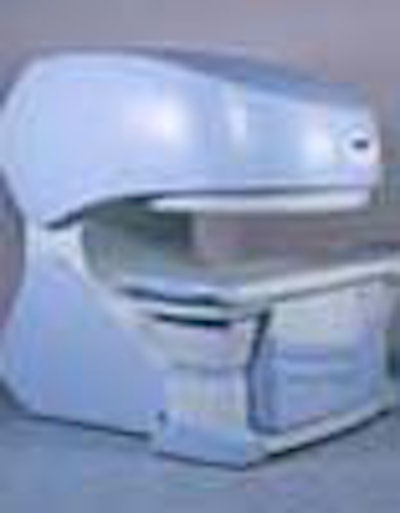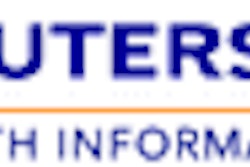
Thanks in part to well-funded government research into MRI, Millennium Technology of Vancouver, BC, has released Canada's first homegrown MRI scanner, called Virgo.
Virgo is a 0.35-tesla fixed-magnet C-shaped scanner, a design that has the advantage of allowing patient access from three sides. With an acquisition cost of less than $800,000 (U.S.), Virgo is being marketed as a low-cost whole-body MRI scanner that will serve a wide range of diagnostic needs at smaller hospitals and clinics. The company received 510(k) clearance for the product in mid-October.
Millennium founder and president Illich Cheng said the company chose fixed-magnet technology because it offers far lower operating and maintenance costs than either high-field superconducting magnets or electrical resistance technology.
"With electrical resistance technology you can make a C-type scanner, but it requires a lot of maintenance, and a lot of electrical power," he said.
One challenge of fixed-magnet technology, Cheng said, was raising the field strength to 0.35 tesla without sacrificing image quality. He said Millennium's engineers encountered a host of technical challenges in building the scanner, including homogeneity problems he said have been solved in Virgo.
The scanner also employs a vertical magnetic field to enhance signal-to-noise ratio, and uses copper shielding rather than a combination of copper and steel. Despite the lack of iron, however, Virgo is heavy, weighing in at a hefty 17 tons.
Virgo is suitable for all standard examinations, including exams of the head, lumbar spine, and whole body, according to Cheng.
Millennium was founded in 1994, and developed the technology for Virgo in part with assistance from Canada's Institute of Biodiagnostics, a government-funded institute based in Winnepeg, Manitoba that researches noninvasive approaches to diagnosing disease and monitoring treatment. The company must now pay royalties for the technology back to the Canadian government. Millennium's chief engineer, Piotr Kozlowski, worked in the institute's MRI research program for more than 10 years before joining the company, according to Cheng.
Another novel aspect of Virgo's design is a database engine written in Java, the platform-transparent programming language developed by Sun Microsystems that can run on anything from a Macintosh to a PACS workstation. The scanner itself runs on the Windows NT operating system.
"The beauty of the Java program is that it's very portable," Cheng said. "In every hospital there are so many different types of computer systems, so many different types of operating software, this is why Java can be so powerful. If a hospital has our viewing software, they can use it with their existing PCs, and their existing mainframes."
If there's a catch to Virgo's pan-platform compatibility, it's in the images. The scanner generates them only in the company's proprietary TFT image format, which can be viewed only on Millennium's proprietary viewing software. This was done simply to protect the company's interests, said Cheng. Nevertheless, he said, the viewer can be used to convert images to the TIFF format, which would allow them to be viewed on any standard Web browser, although "with some data loss," he said. He said the company's viewer allows images to be manipulated remotely.
Reaction to the new scanner at this month's RSNA conference went far beyond the company's expectations, Cheng said. Three Virgos are now installed worldwide, one at a Vancouver hospital and two in Asia, with more being manufactured as a result of recent sales, Cheng said.
Cheng said Millennium is marketing the scanners globally, including in Europe and the U.S. He said there would also be an emphasis on selling the machines in Canada, an underserved market where he said there is a great need for more scanners.
Nevertheless, he said, marketing the machines in Canada is difficult because "the government is the only customer" and that the machines could not be sold to private clinics. Millennium will market the scanners both directly to customers, and through international and North American distributors to be announced soon, Cheng said.
Ultimately, Cheng said Virgo's wide range of applications and low cost will be a boon to radiologists in smaller hospitals and clinics. With a breakeven point of just three $1,000 scans a day over five years, Cheng said, "If you're an entrepreneur you're going to be rich."
By Eric BarnesAuntMinnie.com staff writer
December 24, 1999
Copyright © 1999 AuntMinnie.com



















